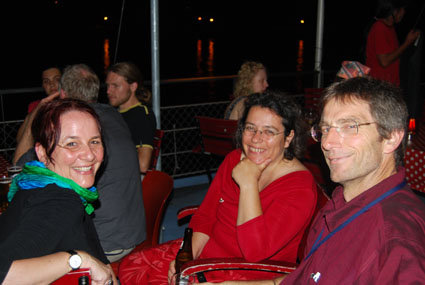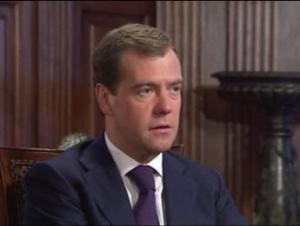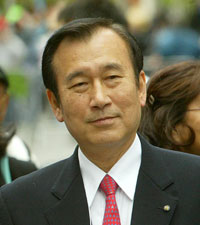Sixty-five years ago this month, the United States exploded the first atomic bombs over the Japanese cities of Hiroshima and Nagasaki, and the world entered an age of unthinkable peril from which we have yet to free ourselves. A single nuclear weapon can destroy a city; 100 Hiroshima-sized warheads can kill tens of millions of people outright and disrupt the global climate so severely that a billion lives could be lost to famine and epidemic disease; an exchange of the thousands of nuclear weapons still deployed by the US and Russia would make the Earth itself an uninhabitable wasteland.
If nuclear weapons were a deadly virus with the potential to sicken and kill hundreds of millions of people in a global epidemic, the nations of the world would spare no expense to contain and eradicate it. We have done this with smallpox, tuberculosis, and polio, and we are marshalling our resources today against HIV/AIDS, cancer, and other emerging health threats. Unlike contagious diseases, however, we have brought this nuclear danger upon ourselves. Nuclear weapons are manmade products. They are more horrifying in their effects than any virus, but eradicating them is actually a simpler task, requiring little more than a firm decision to disarm and the resolve to see that decision through to a conclusion.
International Physicians for the Prevention of Nuclear War believes that universal nuclear disarmament is the most urgent health and security priority of our time, matched only by the need to prevent catastrophic damage to the Earth’s climate. Medical organizations around the world, including the International Committee of the Red Cross, the World Health Organization, the World Medical Association, and many national medical associations have echoed our conviction that eliminating nuclear weapons is the only sure way to prevent their use.
A Nuclear Weapons Convention, requiring all nuclear-armed nations to eliminate their arsenals and prohibiting all nations from acquiring nuclear weapons in the future, is the most effective and practical way to guard against a humanitarian catastrophe of our own making. Such conventions already exist to prohibit chemical and biological weapons, antipersonnel landmines and cluster bombs. It is long past time that nuclear weapons are renounced and their threat removed in the same way. Nuclear weapons cannot be uninvented; dismantling them and ensuring that they are never used again is within our power.
We welcomed President Obama’s declaration in Prague that he wants to work for “the peace and security of a world without nuclear weapons.” Since then, we have heard opponents of nuclear disarmament claim that reaching this goal will take decades. They say abolition must be postponed until we have more peace and more security in the world. Some even argue that the goal of zero is wrong and that nuclear weapons—in some hands but not others—actually enhance stability and security. They try to reassure the public that deterrence works. The nuclear-weapon states—despite their new positive rhetoric about nuclear disarmament—plan to maintain hundreds and thousands of nuclear weapons in their arsenals for decades, claiming national security as their justification. None of these arguments stand up to scrutiny.
Nuclear abolition is an essential step toward more peace and security in the world. “Nuclear weapons for some but not for all” is a formula for proliferation and instability, as is evident in North Asia and the Middle East. The expectation that deterrence—which is a euphemism for threatening to incinerate entire populations—will never fail is a delusion.
Abolition is indisputably the right goal; a fast and determined pace is essential; and the only thing standing in the way of a nuclear-weapons-free world is political intransigence. Hiroshima Mayor Tadatoshi Akiba and mayors in more than 4,000 cities have called for a nuclear-weapons-free world by 2020. Ten years is more than enough time to complete this task, and IPPNW stands with Mayors for Peace in making this demand.
The global expansion of nuclear energy, which is being aggressively promoted by the industry and by governments with a vested economic interest in nuclear fuel production, is a serious impediment to nuclear disarmament. Nuclear energy is not a viable solution to the problem of climate change and endangers health and the environment in every aspect of its operations. In addition to the proliferation risks inherent in nuclear power plants, the reactors themselves are targets. We should be reducing, not increasing, the numbers of those targets. Moreover, nuclear energy is a prohibitively expensive means of meeting the world’s energy needs. IPPNW supports the International Renewable Energy Agency (IRENA), whose mandate is to promote renewable energy sources worldwide, to increase energy security, and to enable economic and social development without reliance on fossil fuels or nuclear energy.
We recognize that there are steps to any journey, and we support the New START between the US and Russia as a modest step in the right direction. Entry into force of the Comprehensive Test Ban Treaty, which should have happened years ago, is another such step that should be accomplished immediately. Other constructive steps would include no-first-use declarations by all the nuclear-weapon states, removal of US tactical nuclear weapons from Europe, a ban on the production of fissile materials, removing nuclear delivery systems from high alert, and halting modernization programs for new weapons and for the infrastructure to produce and test them. The health professions themselves have a responsibility to end medically related commerce in weapons-grade, highly enriched uranium (HEU) by converting all reactors used to produce radiopharmaceuticals to low enriched uranium (LEU). All of these steps can and should be taken immediately.
None of these steps, however, is a substitute for—or a prerequisite for—negotiations on a comprehensive nuclear disarmament agreement. Delays implementing particular arms control measures must not impede the overarching goal of getting to zero promptly. This is why IPPNW launched the International Campaign to Abolish Nuclear Weapons—ICAN—in 2007, to build public and governmental support for a Nuclear Weapons Convention that will rid the world of these instruments of mass extermination.
Nuclear war is the most extreme form of armed violence ever devised, but it is not the only one. Since the end of the Cold War, wars and other military interventions in Iraq, Afghanistan, the Balkan states, former Soviet republics, the Middle East, Africa, South Asia, and Latin America have claimed millions of lives, mostly among non-combatants. Small arms are involved in wars and crimes, suicides and accidents that result in hundreds of thousands of deaths and millions of injuries each year. Moreover, the use of small arms and other conventional weapons can all too easily escalate to the use of nuclear weapons, especially in the most volatile regions of the world. The WHO has identified violence, including armed violence, as an important and preventable health problem, requiring public health approaches to better understand the root causes and to mount effective interventions. This is the goal of IPPNW’s Aiming For Prevention program, which is now in its 10th year.
Peace, security, and freedom are the rights of all people, and the most effective pathway to achieving these rights globally is the Millennium Development Goals. Armed violence of all kinds is a threat to human security and to development. The public health dimensions of this global problem, however, are poorly understood. In order to reduce the high rates of injury and death from intentional violence, we need action-oriented research, education, and advocacy in support of prevention policies at all levels of society. Recognizing that health and development are intricately linked, IPPNW came out as an early supporter of the Geneva Declaration on Armed Violence and Development, which calls for a measurable reduction in the global burden of armed violence and tangible improvements in human security by 2015.
As we gather in Basel at our 19th World Congress to mark IPPNW’s 30th anniversary and our 25th anniversary as a Nobel Peace Laureate, IPPNW recommits itself to ridding the world of nuclear weapons—our first and highest priority—and to preventing war as an obsolete and ineffective means of providing for our collective security—a means that is unworthy of humanity.







